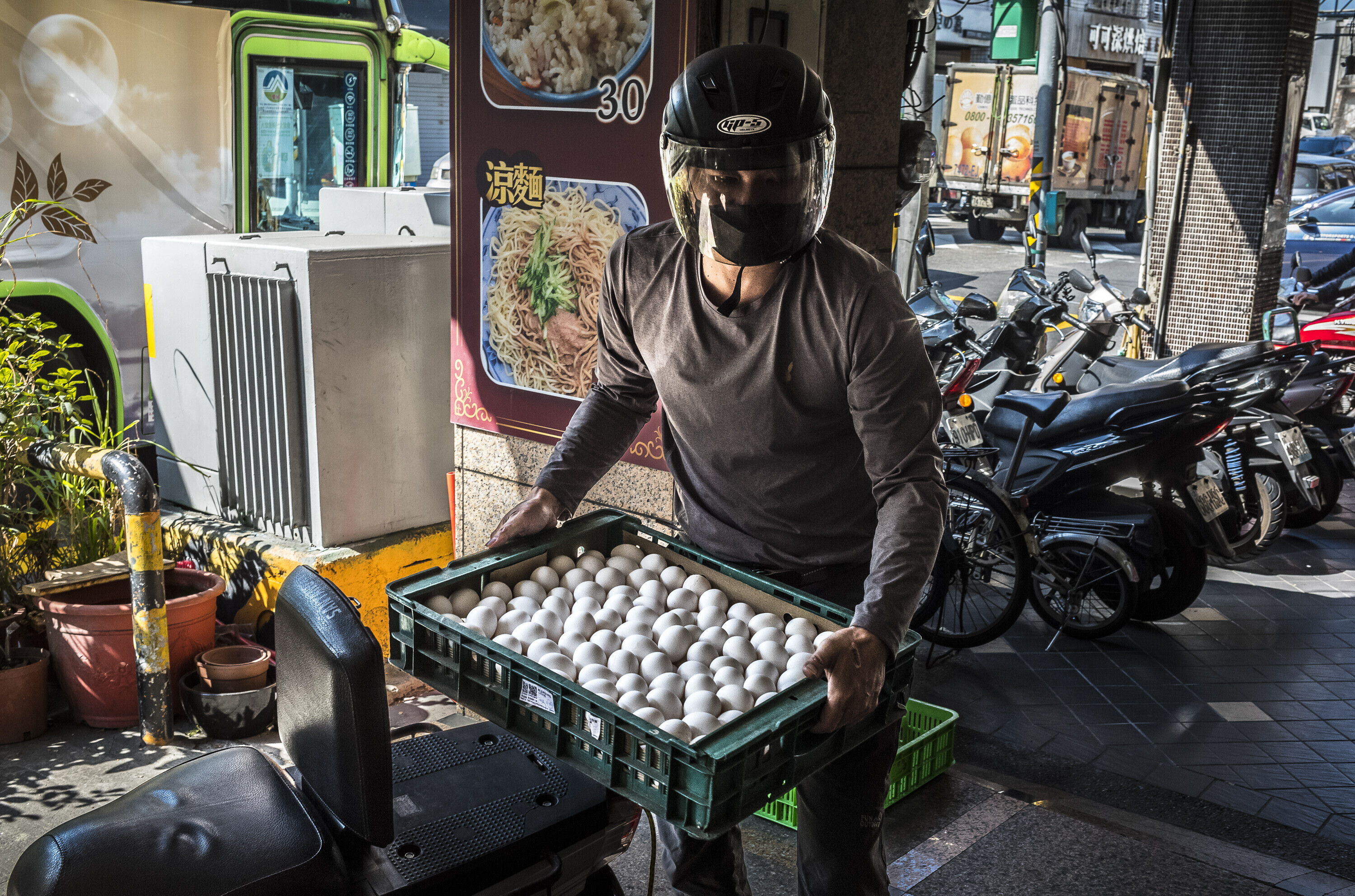Egg shortage in Taiwan sparks false claims about egg hoarding
Header image: A man carries a crate of eggs in Taipei, Taiwan, on 10/03/2023. Taiwan's daily egg demand has climbed to around 24 million, while its daily production capacity during the current shortage has been about 22.6 million by Wiktor Dabkowski (Top image)
The price of eggs in Taiwan has been rising all the way this year, due to a shortage resulting from various factors, including a high number of molting hens, avian flu epidemics, and higher costs associated with feed.
Since February, the Taiwan FaceCheck Center (TFC) has found no shortage of disinformation spread on various social media platforms and messaging apps, targeting certain groups of people, including retired teachers and military veterans who are supporters of the main opposition Kuomintang (KMT) party, that they are deliberately hoarding eggs and throwing them away after expiration.
These false narratives have since spiraled into a political spat between various parties in Taiwan, all the while prompting social antagonism among the local populace.
Viral tales about egg hoarding
Social media, being open to everyone, enable not only news organizations and journalists to post news stories, but also ordinary people to report from their own perspectives and experiences.
While this broadens the scope and diversity of information that one can get from social media, some stories can start off in the form of a rumor, which then spread to large numbers of users, influencing perception and understanding of events, despite being unverified.
The recent case about retired teachers hoarding eggs and throwing them away after they got rotten is a clear example of how unverified sources can spread fast, which started by one individual telling the story and later got propagated by the masses on social media.
Image: Screenshot of the egg-hoarding social media post
The story’s accompanying photo has been debunked by the TFC, as it was discovered sourced from an old news report but unrelated to the recent egg shortage
Furthermore, TFC fact-checkers recently also went the extra mile to verify the claims about egg hoarding, at various military dependents’ villages in New Taipei, and found no evidence to justify that this actually happened.
Military dependents' villages are a unique feature of the urban and rural landscapes of Taiwan. These villages were developed during the KMT authoritarian era in the 1940s and 1950s to provide provisional housing for KMT soldiers and their families retreating from China and elsewhere.
Misleading stories about fake eggs from China
Due to the egg shortage, Taiwan has taken delivery of part of a total shipment of 5 million eggs from Australia and has ordered another 2 million from Turkey, which will start arriving in April, according to the Taiwan Egg Marketing Cooperative.
Meanwhile, in order to combat the egg issue, the Council of Agriculture (COA) on March 15 said the government has begun allowing the import of eggs from the United States, Japan, Brazil, Turkey, Thailand, the Philippines, and Malaysia.
Recently, the TFC also identified stories that misled some to believe that Taiwan has been importing artificial eggs from China.
The stories, presented in video clips, in fact, show the process of making salted and preserved eggs as well as a delicacy called “century eggs” in China. However, when they were shared on various social media platforms, the accompanying false narratives led some viewers to misunderstand and think they were artificial eggs that has been flooding the Taiwanese market.
Image: Screenshot of the Facebook post claiming that Taiwan has been importing artificial eggs from China.
Debunking the false information
In response, the COA has clarified that eggs from China are currently banned from entering the country.
COA’s Department of Animal Industry Deputy Director Chiang Wen-chuan said due to China's quarantine and food safety issues, eggs are not allowed to be imported into Taiwan, and anyone illegally bringing them through the border will be caught.
Manufacturing artificial eggs is probably more expensive than traditional egg farming, Hsu Ting-Chen, adjunct professor of the National Taiwan University’s Institute of Food Science and Technology, said.
It is, therefore, not cost-effective to make artificial eggs, Hsu said, responding to a false narrative that claims China produces 800,000 artificial eggs per day to be exported worldwide.
Echoing Hsu, Chiang said eggs are a relatively cheap source of protein, and the cost of producing artificial eggs as depicted in the videos, is no doubt higher than farmed eggs.
Taking this into account, it is therefore not worth the trouble to import them, he said, believing that no one is willing to do it.
According to COA data as of mid-March, the current daily domestic output of chicken eggs is 22.2 million (111,000 boxes), 200,000 less than the daily number of 22.4 million over the past few weeks when output was already 500,000 to 800,000 lower than usual.






